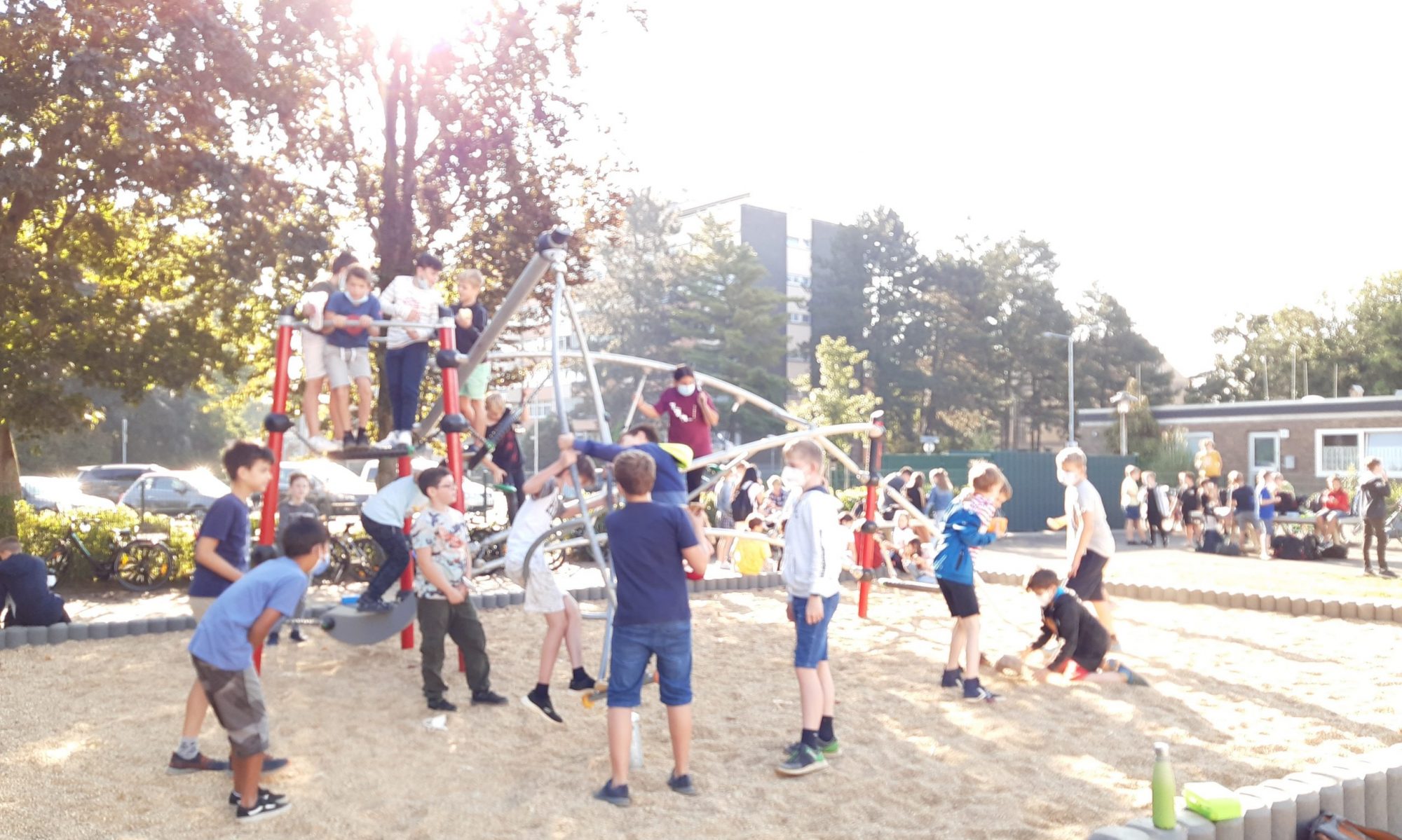
On Saturday, the 23rd of November the Bettina-von-Arnim-Gymnasium opened their school doors to children in the fourth grade and their parents, that are about to decide which secondary school they are going to choose. The visitors were given the possibility to get an inside look about the methods of teaching as well as getting familiarized with the contents of the subjects and the diverse afternoon activities of the school via open informal communication contact between school staff, the students and the parents.
As part of the school´s extracurricular programme, the Europe Erasmus Club presented its new project “Sustainable Living and Travelling in the EU“ and its main goals, the promotion of a personal commitment to forms of sustainable tourism to reduce the carbon-footprint plus encouraging a sustainable individual and educational lifestyle in cooperation with its European partner schools in Spain, Finland and France. By means of self-designed posters and an interactive recycling game the participating members intended to stimulate the visitor´s thoughts about the significance of sustainability. Additionally, they showed their results of examining the three pillars of sustainability: economy, social/cultural element, ecology, and initial approaches for sustainability suitable for daily as well as educational use. Also the importance of looking for new ways together to actively perform sustainablity by sharing methods and experiences on European levels between schools, were exposed to the future students and their parents via interactive and creative methods as a funny Europe-Quiz and a Erasmus-Rallye, which can be introduced into the teaching und learning plans and can be reused for similiar events, especially on the occasion of such a big event the Europe Erasmus Club wanted to contribute its willingness to make school as sustainable as possible: two of our Club members were instated as „plastic detectives“ to register the amount of plastic materials that were used during the Open Door Day. We will figure out which concrete measures could be taken to reduce the consumption of ecologically harmful plastic in daily school life during the course of the project.

